Search Results
77 records found
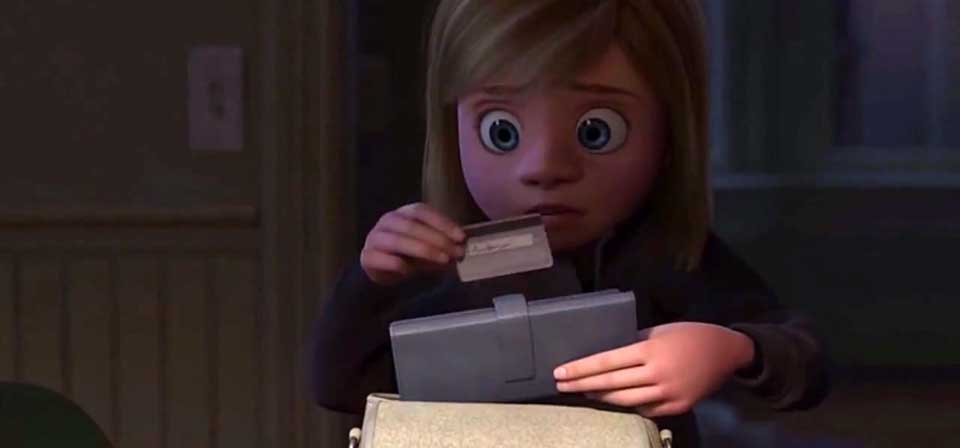
Inside Out and upside down: Does Pixar’s most recent masterpiece distort human nature?
None of this is to say that Inside Out doesn’t present a lopsided view of the place of emotions in human nature. It does. Most if not all stories, even great ones, are lopsided in some respect or other.
The Insider (1999)
These two "martyrs" are not saints; nor are they as cautious and discreet as Thomas More in A Man for All Seasons, which leaves them open to unnecessary suffering. A sobering examination of corruption, courage, cowardice, and the sometimes catastrophic costs of telling the truth.
Insomnia (2002)
Daylight floods Dormer’s life, relentless, ubiquitous — like the penetrating glare of the ongoing Internal Affairs probe back in LA, where Dormer may or may not have something to hide. Like the searching gaze of Alaskan local cop Ellie Burr (Hilary Swank) as she investigates Dormer’s account of a second killing that occurs when an attempt to catch the killer goes tragically awry. Like "the eye of God that will not blink," as Roger Ebert describes the Arctic Circle’s midnight sun in his review of the original film.

Interstellar (2014)
If you love art and science, and in particular if you love astrophysics, space travel and movies about them, it will be hard not to love Interstellar. By this I mean not that you will be bound to love it, but that you will take it hard if you don’t. A film like Interstellar is a rare event, and if such a film falls short, it stings in a way that the day-to-day failures of conventional Hollywood fare don’t.
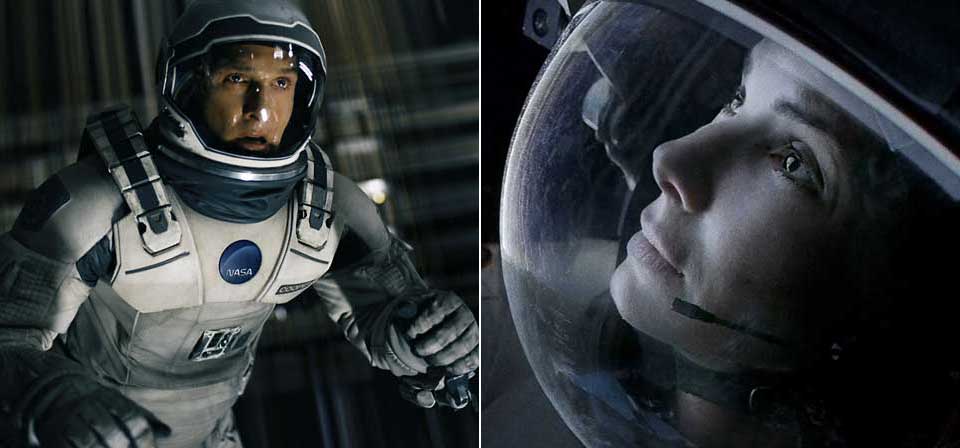
Interstellar and Gravity: Science fiction, outer space and the question of God
Last year’s Interstellar and the previous year’s Gravity follow different paths in a long tradition of asking ultimate questions against the biggest canvas available to our senses, the universe itself.
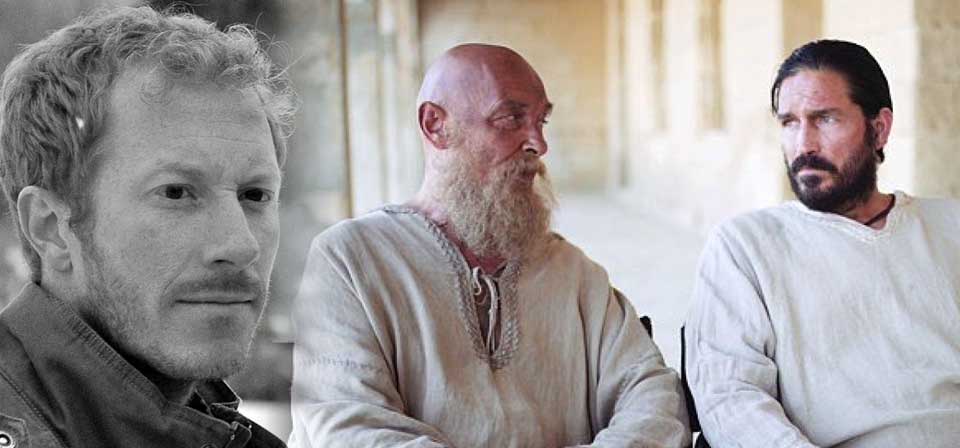
Interview: Paul, Apostle of Christ Writer–Director Andrew Hyatt
The Full of Grace filmmaker talks about the challenges of bringing Scripture to life and the problems with many faith-based films.

Interview: Selma Actor David Oyelowo on Playing Martin Luther King Jr.
If an actor in a faith-based indie like Son of God told you he felt God had told him he was meant to play the role in question, you might not bat an eye. It’s more striking to hear such a thing from the star of a $20-million Hollywood film like the civil-rights drama Selma.
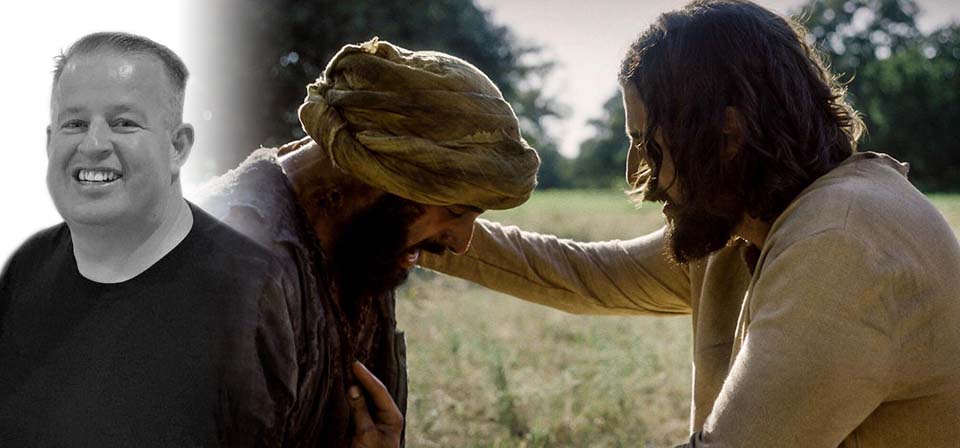
Interview: The Chosen producer Derral Eves
Part of the success story behind writer-director Dallas Jenkins’ popular life-of-Jesus TV series is the remarkable crowdfunding approach spearheaded by viral marketing strategist Derral Eves.
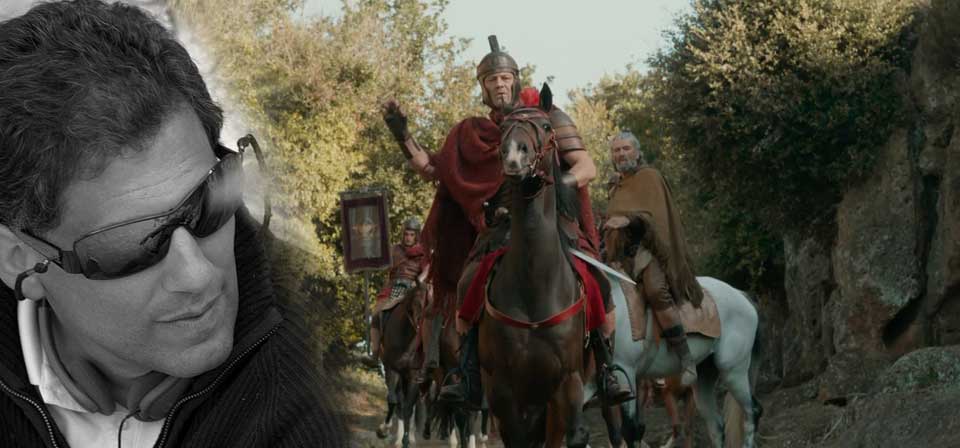
Interview: The Young Messiah filmmaker Cyrus Nowrasteh
The director of my favorite movie this spring about Jesus and a Roman soldier talks about working with Sean Bean, Jesus’ human consciousness, and bringing the biblical world to life.
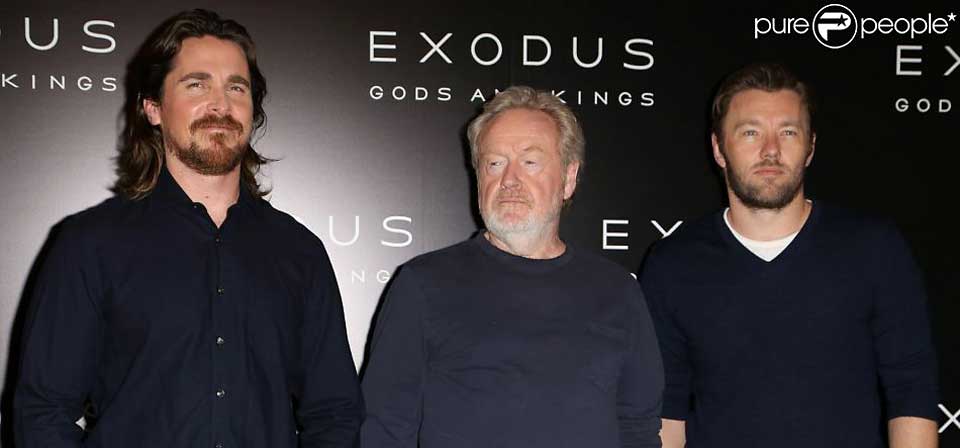
Interview: Exodus: Gods and Kings filmmakers Ridley Scott, Christian Bale and Joel Edgerton
Ridley Scott’s Exodus: Gods and Kings (in theaters Dec. 12) is the year’s second major Old Testament epic from a director who is not a believer — but don’t get Scott started on Noah’s rock-monster Watchers.
Interview: Noah Writer-Director Darren Aronofsky and Co-writer Ari Handel
In a way, the figure of Noah stands over filmmaker Darren Aronofsky’s whole career.
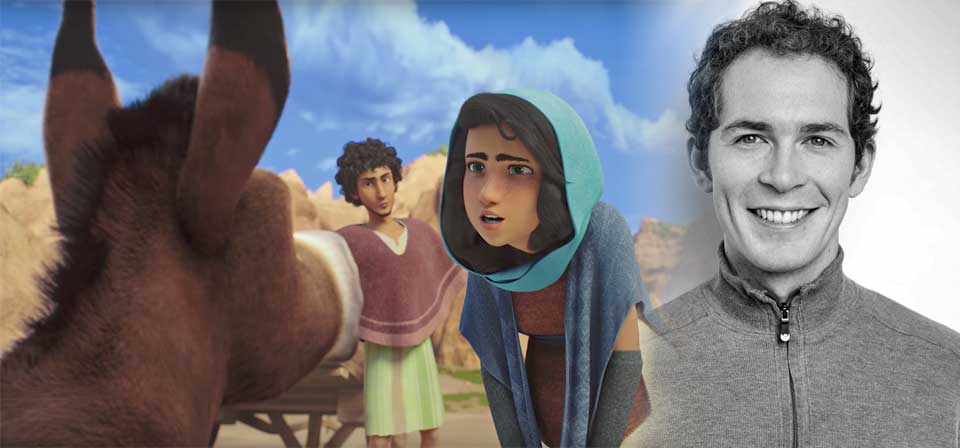
Interview: Catholic filmmaker Timothy Reckart, director of The Star
Timothy Reckart is the talented creator of one of the most original and memorable animated shorts in recent years, the 2012 Oscar-nominated stop-motion gem “Head Over Heels.” He is also a devout Catholic working in Hollywood.
Interview: Filmmaker Scott Derrickson on Horror, Faith, Chesterton and Deliver Us From Evil
Scott Derrickson is a very nice guy who makes movies about things that aren’t very nice.
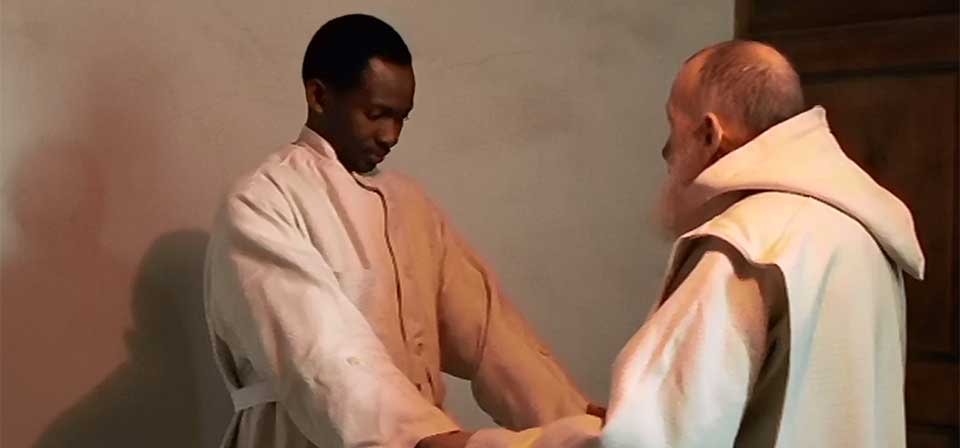
Into Great Silence (2005)
Ultimately, Into Great Silence reveals itself to be about nothing less than the presence of God. So many spiritually aware films — The Seventh Seal, Crimes and Misdemeanors — are about God’s absence or silence. Here is a film that dares to explore the possibility of finding God, of a God who is there for those who seek him with their whole hearts.
Into the Wardrobe: Bringing Narnia to Life
Before there are centaurs, fauns, or even a lamp-post incongruously burning in the middle of nowhere to establish that the forest beyond the wardrobe door is no ordinary wood, Andrew Adamson’s The Lion, the Witch and the Wardrobe creates the magic of the wood and the wardrobe with the enchantment on the face of young Georgie Henley, who plays Lucy Pevensie, as she gets her first glimpse of the Narnian wood.
Intolerance (1916)
Intolerance is a grandiose composite epic, interweaving four separate morality plays from different eras and settings, from 20th-century America (the "Modern Story") to Old Testament times (the "Babylonian Story"). Rounding out the four are a brief survey of the life and death of Christ (the "Galilean Story" [sic; most of it is set in Judea, not Galilee]) and events from the 16th-century persecution and massacre of Huguenot Protestants under the Medicis, including the St. Bartholomew’s Day Massacre (the "French Story").
![The Irishman [video]](/uploads/articles/irishman.jpeg)
The Irishman [video] (2019)
Robert De Niro, Al Pacino and Joe Pesci star in Martin Scorsese’s decade-spanning gangland opus, which turns out to be a very different movie than it seems … but you have to stick with it.
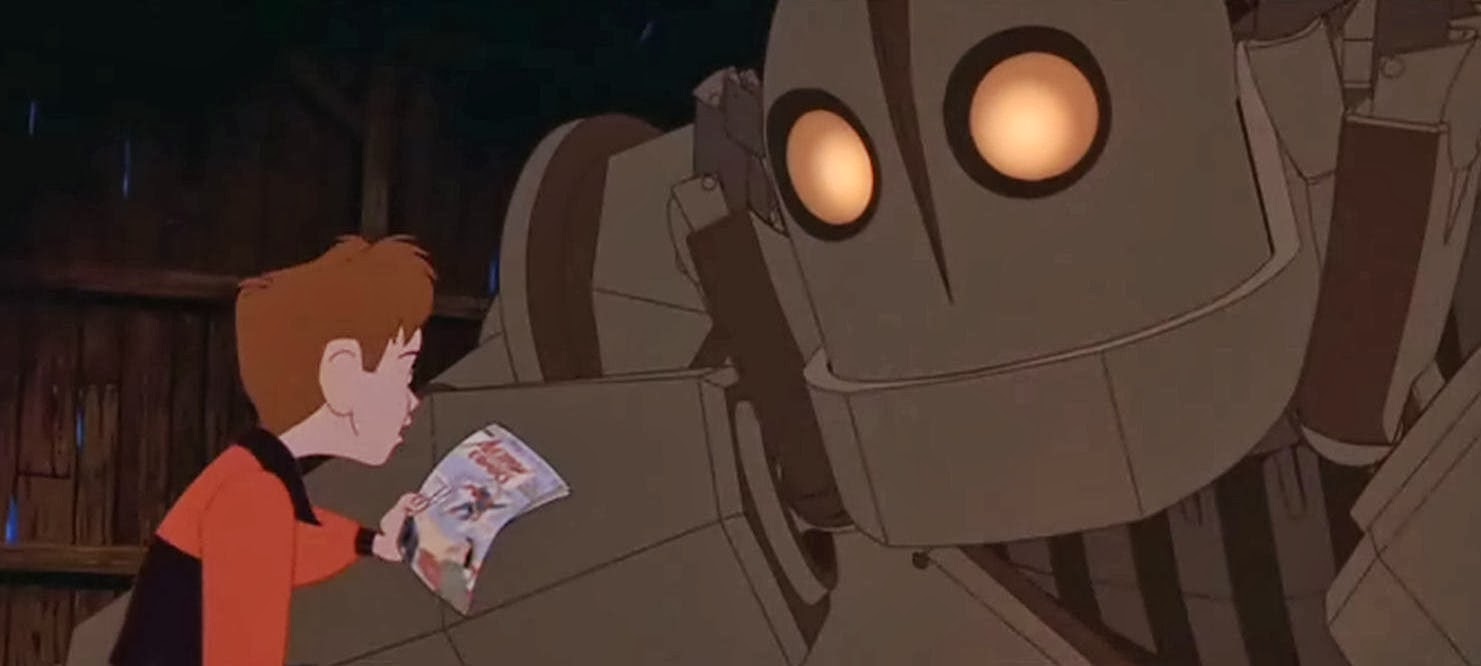
The Iron Giant (1999)
There is a purity to Brad Bird’s directorial debut The Iron Giant, based on the British poet Ted Hughes’ children’s novel The Iron Man, that is inconceivable in the family film landscape of today.
Iron Man (2008)
Smart, sardonic and more than a little silly, Iron Man is a successful super-hero movie that never takes itself too seriously.
Iron Man 2 (2010)
His suit may be iron, but he’s still got feet of clay. Tony Stark may not be the same narcissistic jerk he was at the beginning of Iron Man two years ago, but that doesn’t mean he’s someone completely different either. The road to redemption is seldom so straight as that.
Recent
- Benoit Blanc goes to church: Mysteries and faith in Wake Up Dead Man
- Are there too many Jesus movies?
- Antidote to the digital revolution: Carlo Acutis: Roadmap to Reality
- “Not I, But God”: Interview with Carlo Acutis: Roadmap to Reality director Tim Moriarty
- Gunn’s Superman is silly and sincere, and that’s good. It could be smarter.
Home Video
Copyright © 2000– Steven D. Greydanus. All rights reserved.